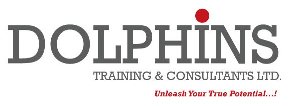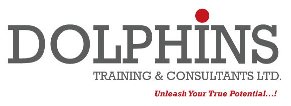
Could it be that our lives and careers are simply a reflection of our Words?
►Is the difference between a millionaire and a billionaire the words they know and use?
►Could the difference between a happy person and depressed person simply be the words they chanted to themselves?

Some people insist that the true test of a salesperson is their ability to overcome objections. Many Top Skills Salesmen welcome the challenge of an objection while others dread them. The best way to overcome an objection is by being prepared. Objections occur when there is lingering doubt or unanswered questions in the mind of the prospect. The prospect may be favorably inclined to make a purchase but needs clarification, more concessions, or approval by another party.
It is almost guaranteed you will get objections if you’ve failed to established need, rapport, credibility or trust. Have you qualified the buyer and determined need and interest level? Here are ten strategies for identifying the true objection and then conquering it:
1. Establish mutual trust and confidence and let the prospect know that you are there to be both an advocate and a consultant. If you can establish the rapport to build a friendship, that’s certainly valuable, but not essential.
2. Listen carefully to the objection being raised. Is it an objection or just a delaying tactic?. A prospect often will repeat an objection if it's real. To uncover the truth, try asking "Don't you really mean . . ." or "You're telling me. . . but I think you mean something else."
3. Qualify it as the only true objection. Ask the prospect if it is the only reason he/she won't buy from your company.
4. Confirm it again. Rephrase your question to ask the same thing twice. For example, ask "In other words, if it weren't for the price, you'd buy my service. Is that true?"
5. Phrase a question in a way that incorporates the solution. "So if I were able to get you a longer warrantee," would that be enough for you to make a decision?"
6. Answer the objection in a manner that thoroughly resolves the issue. Pull out your Guerrilla ammo here. You can submit a testimonial letter, a competitive comparison chart , or a special time-sensitive or price-related offer.
7. This is the time to demonstrate value, list comparisons, and prove benefits. If you cannot answer the prospect in a way that's different or sets you apart from others, you'll never close this (or any) sale.
8. Ask a closing question or communicate in an hypothetical way. Ask a question, the answer to which confirms the sale. "If I could do X, Y or Z , would you give me your order ?" is the classic model for a close.
9. Describe similar situations when you close; people like to know about others in the same situation.
10. Confirm the answer and the sale (in writing when possible). Get the prospect to transform into a customer with a confirming question like: "When do you want it delivered?" or " When is the best day to begin?"
Product knowledge, creativity, sales tools, and confidence in yourself, your product, and your company must call some together if you are to overcome sales objections and close the sale. You must combine technique with honesty and conviction to get the prospect to resolve any lingering doubt or conflict.
Good Luck...
Compiled by,
Julianna M Katana,
Sales & Marketing Dept - Dolphins Training and Consultants ltd
Dolphins Group


.jpg)
.jpg)
.jpg)
.jpg)

.gif)


.jpg)
.jpg)
.jpg)


.jpg)